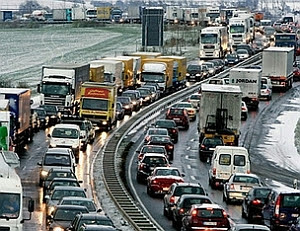If you are traveling a longer distance, it would be wise to drive your car there, but if you are going to your grandmas only or just around the neighborhood to your corner store for milk, the best option would be to ride your bike there. According to volunteerguide.org, riding a bike "uses absolutely no nonrenewable energy (just your own!) and emits no pollution, making it one of the best ways to get around without contributing to global warming." It is all around the smarter choice to ride a bike to your destination.
Not only will riding a bike save your health, the earth, your wallet (you'll be saving on gas!) but as oppose to cars, contributing to half of transportation fatalities, bikes are only 2 percent. Cars cause many pollutants, according to volunteerguide.org, only a "four-mile trip by car adds 15 pounds of pollutants to the air we breath," so if you chose to ride your bike that would be 15 pounds less per every four miles.
According to USATODAY, there are only eight percent 8 percent of American households without a car, so 92 percent of Americans have cars. Let's say Americans drive two hours a day, at 65 miles per hour, which equals 130 miles divided by 4 which equals 32.5 multiplied by 15 (for every 4 miles there are 15 pounds of pollutants) which equals 487.5 pounds of pollutants a day per person who drives in America at roughly two hours a day. That is a lot of pollution when it can easily be avoided.
You should opt to make the choice to ride your bike when your destination is less than 5-10 miles away, and the futher destinations, you should chose to drive. If we work together, we can make a difference in the enviornmentm, and our health, and our wallet.
 |
| Many drivers and more pollution |
 |
| Cars create a lot of pollution |
 |
| Bike crossing |
 |
| Ride a bike. |























